 Just like the foot race marathon, you don’t get bragging rights until you actually do it. And, appropriately, this year’s Poetry Marathon took place during the summer Olympics. So while I was toiling away at my poetry prompts and posting poems to the official marathon blog, runners from around the world were competing for gold, silver and bronze medals in Rio.
Just like the foot race marathon, you don’t get bragging rights until you actually do it. And, appropriately, this year’s Poetry Marathon took place during the summer Olympics. So while I was toiling away at my poetry prompts and posting poems to the official marathon blog, runners from around the world were competing for gold, silver and bronze medals in Rio.
Unlike the Olympics, the Poetry Marathon is an annual event. I originally posted on it here, and the PM website offers a complete history and FAQ of the event. While I’ve known about the event for several years, this is the first year I participated. Luckily for me (and many others), the organizers have created a half marathon, which is what I completed. Both marathons start at 9:00am ET on writing day (Aug 13 this year), then every hour for 12 or 24 hours, participants are expected to write a poem and post it to the PM website. Each participant gets their own login on a group WordPress site, then as each participant publishes a poem, which is housed on their own blog space, it is also posted to the whole group blog. If you look at the site now, what you see are the poems posted by the participants as they came in.
If this sounds like a big commitment of a day, it is – or it can be. The organizers are flexible in letting participants commit to (on their honor) writing one poem every hour and then posting them when they can get to a computer. Some participants commented on having to go to work, so while they were writing the poems, they wouldn’t be posting them until later. Even for me, with a day “off,” I couldn’t be at the computer every hour of the day.
Bottom line: Was it fun? Was it engaging? Was it worthwhile? Yes, yes, and yes. Would I do it again? Absolutely. Until you do it, you don’t quite “get it.” Write a poem an hour? Anyone can do that on their own. But it was motivating (even a bit demanding) being in the community, committed to having to publish poems up to the website, having to be responsible every hour of the day. In fact, even while I was just sitting working at the computer, I almost missed one of the hours because I was so caught up in my work. I realized it with only five minutes left in the hour and scrambled to catch up! The pressure! It was wonderful. As were the prompts, which the organizers provide at the top of every hour. I admire those writers who had their own ideas for poems, but I relied heavily on the prompts to give me something to write about and get the writing done. There were many who did the same, and it was engaging to see the various interpretations of the prompts – a lot of really creative writers.
When it was done – 12 hours and 12 poems later – I felt a deep sense of pride and accomplishment. Not that I believe I wrote 12 astonishing poems that will shake the world. But because I wrote 12 poems in 12 hours as part of a community of people who were just as eager and committed as me. Surrounded for a whole day by an entire community of poets – reading, writing, commenting, and then doing it all over again, and again, and again. I think immersion is the right word.
I also learned that not everyone will be able to appreciate the experience if you try to share your joy at the accomplishment. “I just finished a poetry half marathon!” I exclaimed to my husband as I walked away from the computer at 9:00pm after just having posted my final poem. “Okay,” he said, not turning away from his laptop.
What you get out of it is definitely personal. Unlike the foot race, and unlike the Olympics, there aren’t throngs of people cheering your completion, no competitors there to hug you for a good race won. Though the organizers and participants do post encouraging comments for one another and have chat groups running to motivate one another, in the end, the sense of whatever it has meant to you will be completely up to you to generate and to own.
I thoroughly enjoyed the experience, I was challenged, I accomplished my goal, and I hope to be back to do it again next year.
Thank you Poetry Marathon! Congratulations to everyone who completed the half 12 hours of writing and the full 24 hours of writing. I get it: You are amazing!
[Applause]
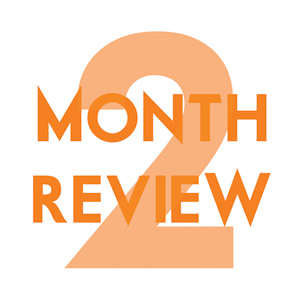 Three Percent Podcast is now expanding from their weekly(ish) episodes to include weekly Two Month Review mini-episodes. Each season of the new mini-episode series will highlight a different Open Letter book, reading it over the course of eight to nine episodes. Rotating guests will join host Chad W. Post, using the reading selection as a springboard for further discussion on literature, pop culture, reading approaches, and more.
Three Percent Podcast is now expanding from their weekly(ish) episodes to include weekly Two Month Review mini-episodes. Each season of the new mini-episode series will highlight a different Open Letter book, reading it over the course of eight to nine episodes. Rotating guests will join host Chad W. Post, using the reading selection as a springboard for further discussion on literature, pop culture, reading approaches, and more.
 Saturday is the day! April 29 is the 4th Annual Independent Bookstore Day. Indie bookstores across the United States are gearing up to celebrate with exclusive items, literary activities, readings, author signings, giveaways, and more this upcoming Saturday.
Saturday is the day! April 29 is the 4th Annual Independent Bookstore Day. Indie bookstores across the United States are gearing up to celebrate with exclusive items, literary activities, readings, author signings, giveaways, and more this upcoming Saturday. Begun in 1989,
Begun in 1989, 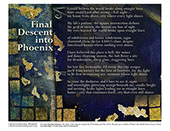 This month’s featured collaboration from
This month’s featured collaboration from 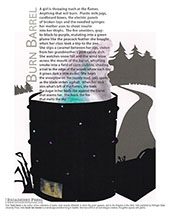 In addition to the
In addition to the  This has got to be the perfect gift for at least one person on your holiday list: a
This has got to be the perfect gift for at least one person on your holiday list: a 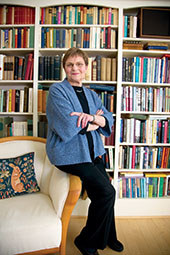 In the evenings of my childhood,
In the evenings of my childhood, Just like the foot race marathon, you don’t get bragging rights until you actually do it. And, appropriately, this year’s
Just like the foot race marathon, you don’t get bragging rights until you actually do it. And, appropriately, this year’s 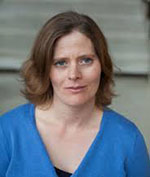 Tonight, I dressed my son in astronaut pajamas,
Tonight, I dressed my son in astronaut pajamas, The Poetry Marathon
The Poetry Marathon For you newbies, the August PoPo Fest goes like this: You sign up. You get a list of 31 names/addresses of other people who signed up. Starting late July, you write a poem a day on a postcard and mail it off to the next person on the list, so by the end of the month, you will have (hopefully) written and sent 31 poems and (hopefully) received 31 poems.
For you newbies, the August PoPo Fest goes like this: You sign up. You get a list of 31 names/addresses of other people who signed up. Starting late July, you write a poem a day on a postcard and mail it off to the next person on the list, so by the end of the month, you will have (hopefully) written and sent 31 poems and (hopefully) received 31 poems.

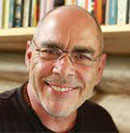 Inspired by the same-named memoir,
Inspired by the same-named memoir, 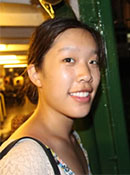 In her
In her